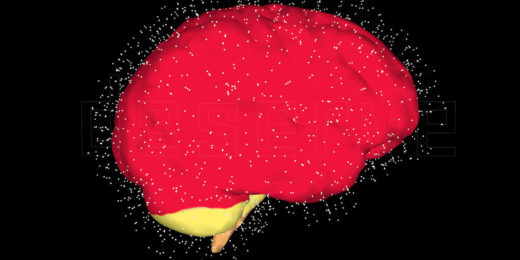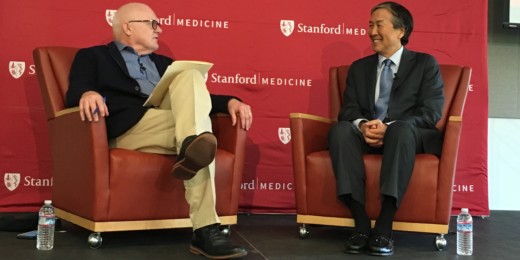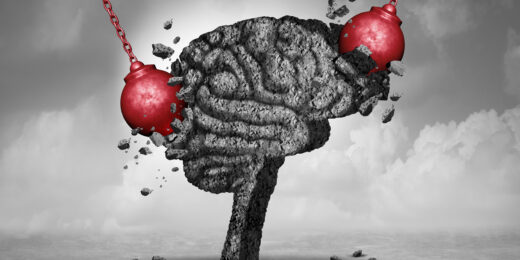The anti-inflammatory drug ketoprofen shows promise as effective medical treatment for lymphedema symptoms, small Stanford study finds
Category: Anesthesiology & Pain Management
Looking beyond opioids: Stanford pain psychologist briefs Congress
Stanford pain specialist argues for comprehensive and personalized treatments as Congress considers legislation to combat the opioid crisis.
To help patients quash pain, researcher develops practical guide for health care providers
In a new book, Stanford pain psychologist Beth Darnall offers practical tools for health care providers to help their patients reduce pain.
Editorial shows importance of looking beyond medications to treat pain
Brain regions not directly involved in the receipt of pain signals play a key role in the perception of pain, and show the importance of non-drug therapies.
Teens shouldn’t use medical marijuana, but the plant’s active compounds have select uses, debaters agree
There’s no good evidence for using marijuana for common complaints, and the products sold in cannabis dispensaries pose risks to kids and teens.
Epidurals increase in popularity, Stanford study finds
The percentage of pregnant women getting epidurals or other spinal analgesia has climbed to a high of 71 percent, according to a Stanford study.
A galvanizing exhibit explores issues raised by Frankenstein
A new exhibit at Stanford's Cantor Arts Center draws on the themes of technology, medicine and ethics raised in Mary Shelley's novel, Frankenstein.
Asking hard questions to reduce maternal mortality
It’s one of the hardest questions in medicine: Should hospitals ever stop spending money to avert certain preventable deaths?
Prevention and health disparities demand greater attention, public health leader Howard Koh says
Howard Koh, MD, former assistant secretary of health in the Obama Administration, spoke recently in a Stanford Health Policy Forum discussion.
Spinal health and back pain: Straightening out facts from fictions
What can be done to treat and prevent back pain? And how does our mental/emotional health affect our spinal health? Esther Gokhale, a spinal health educator and author, weighs in.
Stars of Stanford Medicine: “I have the best job in the world”
This Stars of Stanford Medicine Q&A features anesthesiologist and researcher Vivianne Tawfik, who examines the roots of chronic pain.
Teaching patients in pain self hypnosis could help curb the opioid crisis, Stanford researcher says
In this video, Stanford psychologist David Spiegel discusses how hypnosis reduces pain and could help curb the opioid crisis.
“Slow and steady wins this race”: Stanford pain specialist studies opioid tapering
Stanford pain expert Beth Darnall discusses her clinical trials on methods to taper opioid doses for patients with chronic pain.
Stanford headache specialist demystifies migraine auras
I have close friends who get debilitating migraines so I knew a bit about auras, which are sensory disturbances that often precede migraine headaches. But experiencing …














